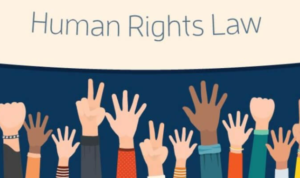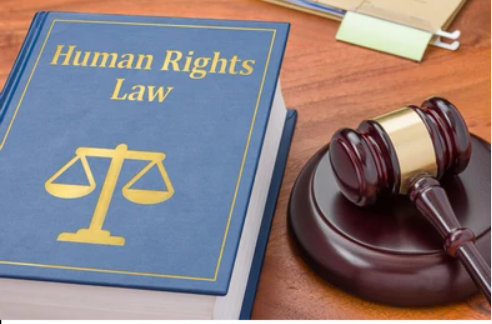|
Getting your Trinity Audio player ready...
|
Human rights laws are fundamental entitlements belonging to all people. Throughout history, both civil and political rights have been used by individuals and groups to exert pressure on governments. As societies evolved, human rights jurisprudence has progressed with them; this includes international treaties and national laws that protect the fundamental human rights of everyone.
Human rights law is one of the most important tools for protecting people from abuse and exploitation. Whether it be through national or international laws, these laws have been implemented to ensure that everyone has access to their basic civil liberties. This article will explore the role of human rights laws in modern society and how they affect our everyday lives.

Equality and non-discrimination:
Human rights laws protect people from discrimination on the basis of their race, gender, age, sexual orientation, disability, or other characteristics. These laws also guarantee that everyone has equal access to resources and opportunities regardless of their background. This helps ensure that all individuals can enjoy the same level of freedom and justice in their societies.
Promote accountability:
Human rights law holds governments accountable for their actions towards citizens. This includes ensuring that they do not violate a person’s fundamental human rights or engage in any form of discrimination against them. If a government fails to adhere to these standards, they can be held liable under international law.
Protect vulnerable populations:
Human rights laws provide special protections for vulnerable populations, such as refugees, children, and the elderly. These laws help ensure that these individuals are not taken advantage of or discriminated against due to their unique circumstances. In addition, human rights law can also be used to protect people from violence and exploitation.
Promote economic security:
Human rights laws also play an important role in promoting economic security by protecting workers’ rights and ensuring that everyone can access basic resources like food, shelter, and healthcare. By guaranteeing these fundamental entitlements, human rights law helps foster a more equitable society where everyone has a chance to thrive.
Human rights laws promote social justice:
Human rights law is a powerful tool for promoting social justice. It helps create a legal framework that enables everyone to and with respect, regardless of their background or identity. This helps ensure that all individuals are able to access the same opportunities and resources, which can lead to greater economic equality and social progress.
Provide a platform for advocacy:
Human rights law also provides a platform for advocacy and activism. Activists can use these laws to hold governments accountable and ensure that they are adhering to their human rights obligations. This helps create an environment where people’s rights are respected and protected, enabling them to achieve their full potential. Human rights laws provide an invaluable platform for advocating for change in our communities, from pressuring governments to create comprehensive policies on issues such as climate change or health access, to directly engaging with businesses to implement sustainability practices.
Promote peace and stability:
Finally, human rights law helps to promote peace and stability in societies by protecting individuals from abuse and exploitation. By creating a legal framework that supports the rights of all people, these laws help to foster an environment where everyone can live in dignity and security.
Human rights laws provide a moral code of conduct by establishing basic principles that all should follow in order to promote justice and fairness in society. They also create a platform for constructive dialogue between governments and oppressed parties while further protecting basic freedoms accorded to everyone.Legislation alone cannot guarantee peace; however, when created with the purpose of protecting human dignity and expanding freedom of thought it can act as a bridge for people separated by misunderstandings or even geographical distances.
Conclusion
Human rights laws play an essential role in protecting individuals from discrimination and ensuring that they have access to the same resources and opportunities. These laws also promote accountability, protect vulnerable populations, promote economic security, and foster social justice. Additionally, they provide a platform for advocacy and help to create an environment of peace and stability. Overall, human rights law is an invaluable tool for promoting equality and justice around the world.

